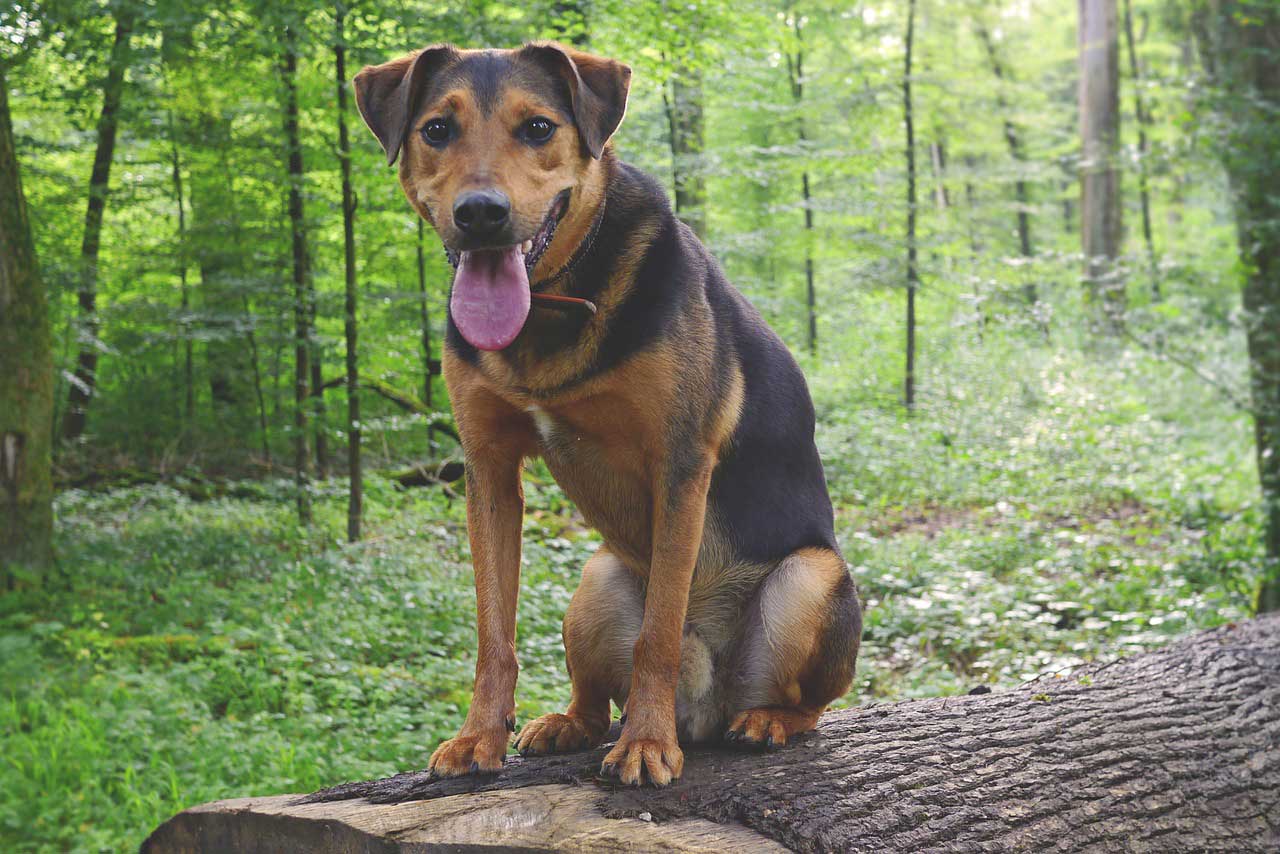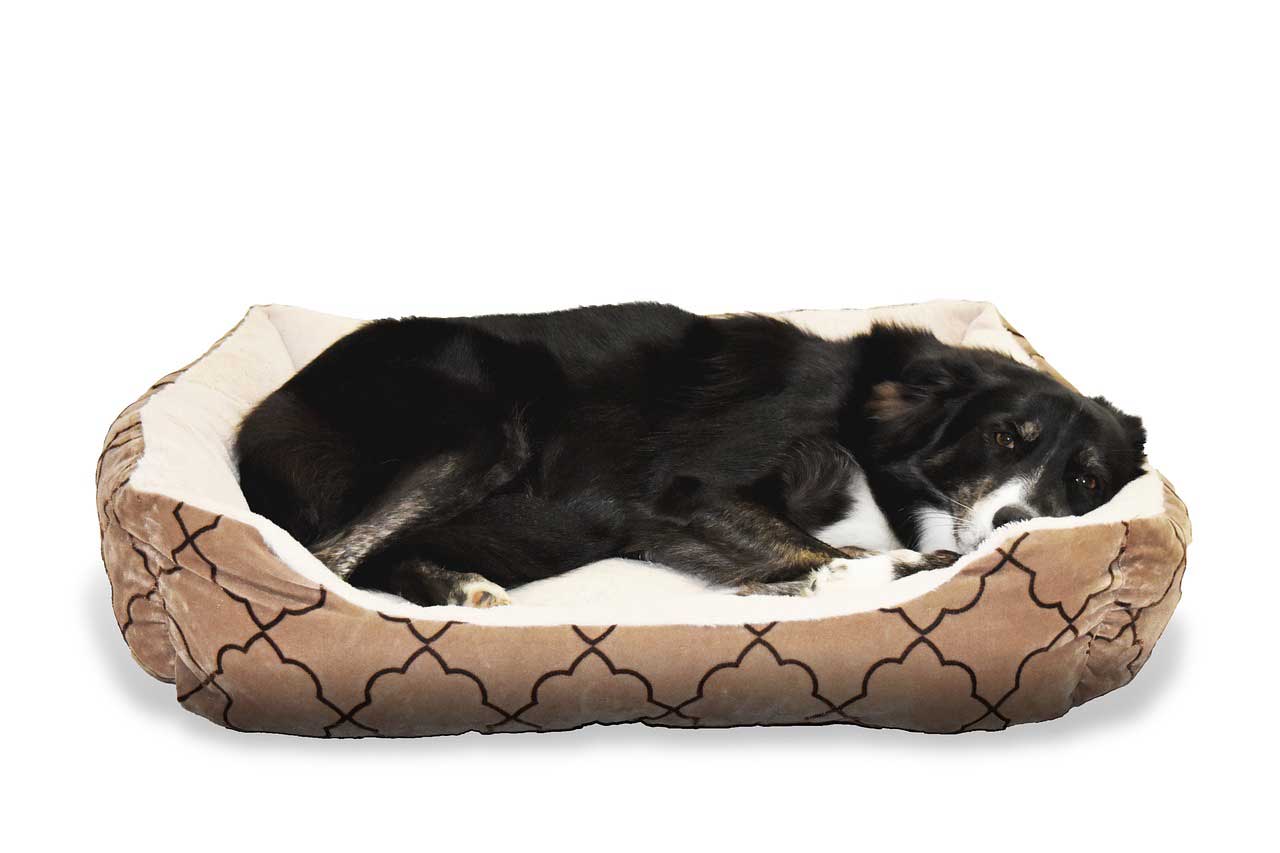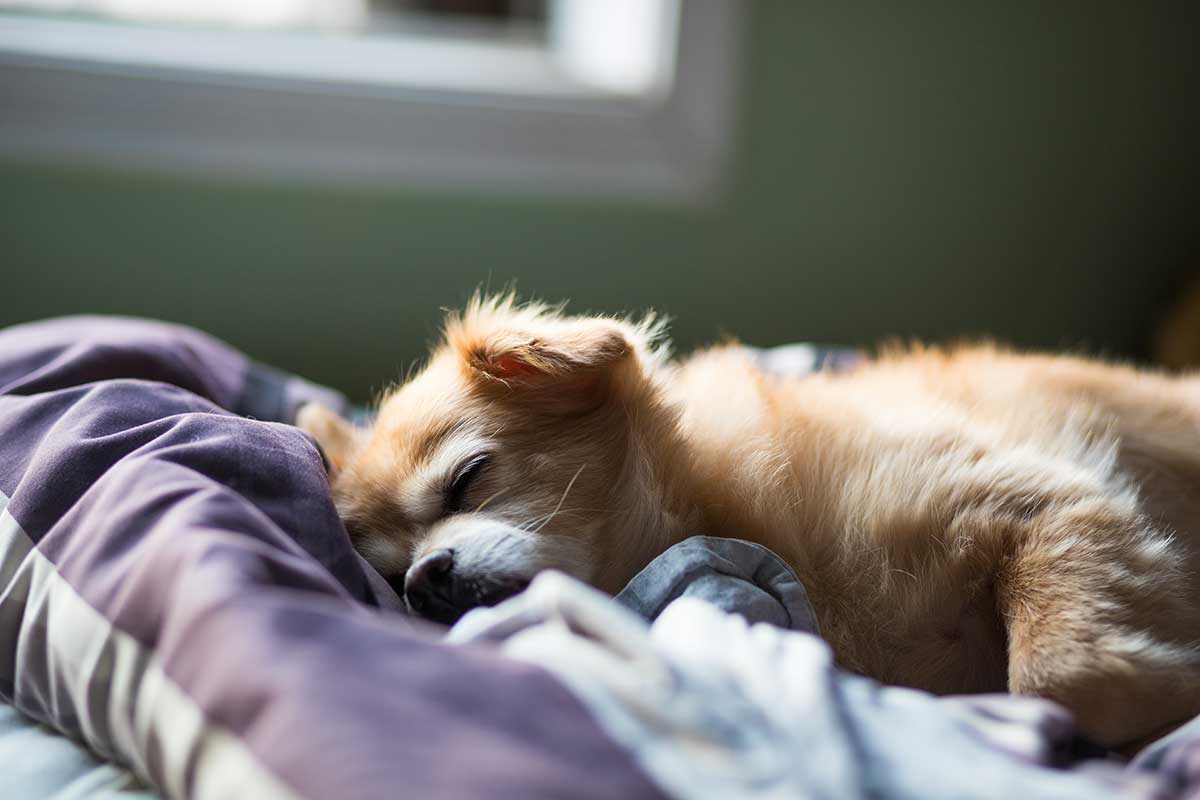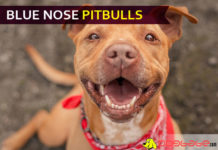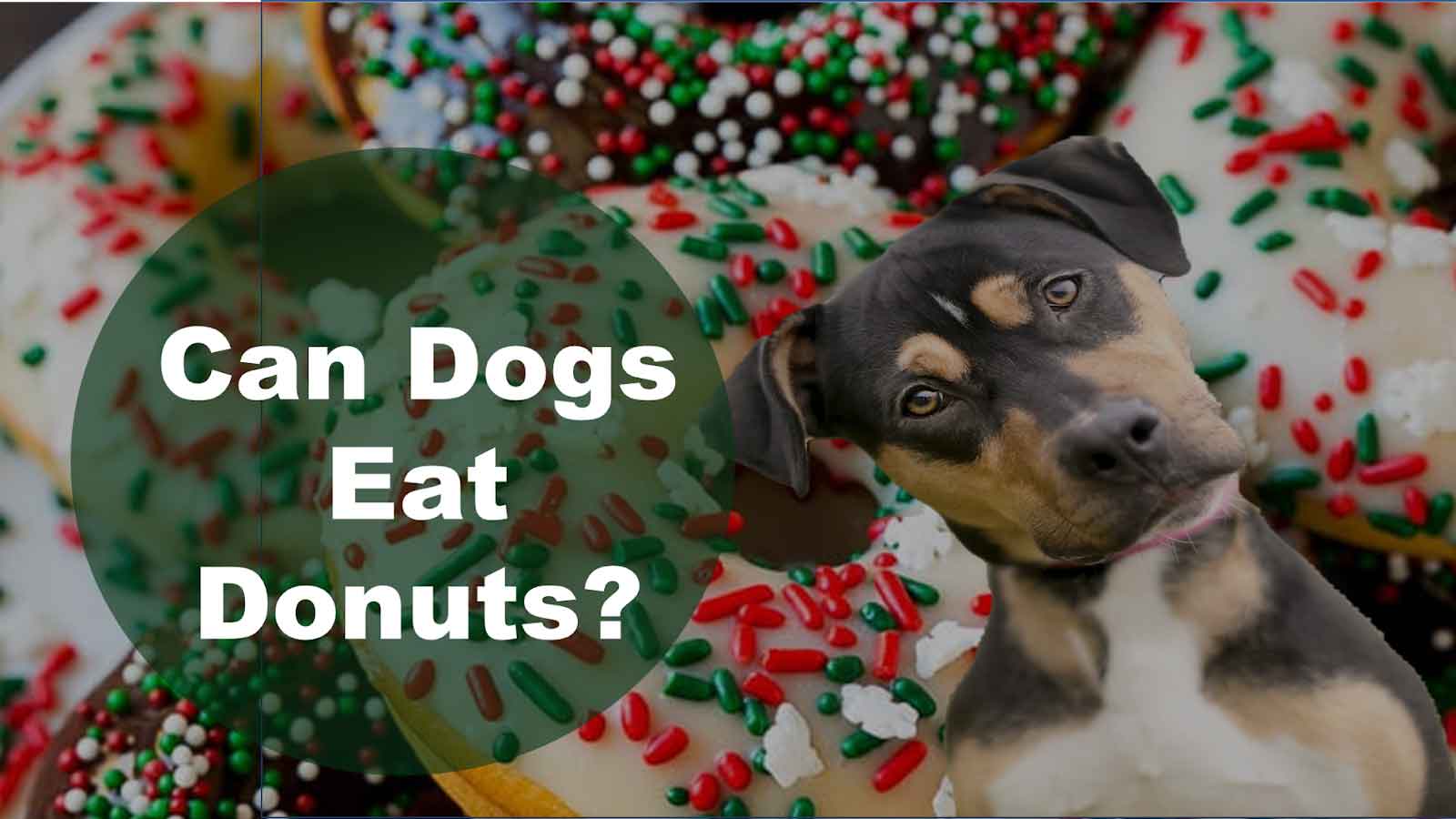One of the most common behaviors that people tend to see in dogs is that of panting. Panting can mean any number of things, from happy behaviors to ones that might cause some alarm.
If you’re not familiar with dogs, you might not know the differences and what to look for, so here in this article I’m going to help you determine the meaning of a dog’s panting and what you might be looking at as far as the meaning behind it.
Before I get into the different subtopics that can let you know why your dog is panting, I want to start with the most important thing to keep in mind when you see your dog panting: panting is a symptom of some other issue (they can be good AND bad, so don’t get stressed right away!), never the actual issue itself.
Therefore, when you see your dog panting, always be sure to look at your dog’s physical and emotional reactions to figure out what the issue is. And as always, if you are truly concerned, call your vet to check in!
A lot of vets, like the ones I use at Banfield (cheap plug, I know), have a monthly wellness plan that you can purchase which will allow you as many office visits as you would like; if your dog just needs to be looked at and you want to be reassured (and they don’t need any kind of medicine or anything), they won’t charge you! It’s certainly not pennies on the dollar ot get it, but at least for me peace of mind with my fur babies is worth the extra money.
So let’s dive in and see exactly what panting is all about…
Dogs Will Often Pant When They Are Happy
For those of you who naturally have some anxiety, especially about our beloved fur babies, let’s start out with something to help you relax: panting is not always a bad thing!
Sometimes when dogs are excited (i.e. learning new tricks, playing around with their fellow dog friends or their masters), dogs will pant quietly or lightly. In fact, it may not register as much else other than a slightly heavier breathing than normal.
So if you are playing around with your dog, or hanging out with them on the couch or outside and they are panting slightly, it might just mean they are happy and excited to see you (and isn’t that everyone’s dream?)!
Now, you may notice that when you and your dogs are playing around, especially if you are playing outside and/or going for a walk or run outside, your dogs may start to pant a little harder but it may still seem like they are in a good mood. Don’t assume this is necessarily anything bad! If you and your dogs are playing outside and they start to pant a bit more, it likely has to do quite a bit with our next point:
Dogs Pant to Regulate Their Body Temperatures
Quite possibly the most common reason dogs pant, dogs will often use panting to regulate their body temperatures since they do not have the same kind of sweat glands that people do (their sweat glands are in their paws), so they need the panting mechanism – where moisture obviously will be released via the mouth and tongue – to help them regulate their body heat.
That’s why you will notice your dog panting more when you/they are exercising vigorously outside – they are excited, true, but they are also getting a little overheated and “sweaty” and they need to pant to cool themselves off!
That means your dog might need to get a quick water break, or just lay there for a bit to cool off (if your dogs are at all like mine, you’re probably familiar with the dog elegantly “sunning” him or herself on your lawn).
Now, of course, as mentioned in my introduction, you should always check your dog’s reactions and body language when they are panting, especially when it is hot out. If your dog is happily playing along or just resting for a bit, they just need to cool off.
However, excessive panting in extreme heat conditions can also be a sign of heat exhaustion or even heat stroke, which is a very serious condition. Fortunately, there are easy warning signs to detect this condition.
Look for what may seem like excessive – or even perhaps panicked – panting, especially after you have gone inside and they shouldn’t be panting so hard still. Your dog’s gums may turn blue or a bright red, may develop diarrhea, and in extreme cases your dog may start to convulse or even collapse and suffer a seizure; if any of these things happen, make sure you take your dog to the vet right away.
Of course, if your dog stops panting after a while, drinks some water, and seems fine afterwards, then they just needed to cool off…just like all of us when we sweat!
Dogs Will Often Pant When They Are Nervous or Stressed
Dogs can also pant if they are nervous or stressed out by a certain situation. Since pants can look similar, there are also some other warning signs and things to look for to determine if your dog is panting because of stress.
If your dog is panting but also licking their licks, yawning, whining, or hiding from everyone, it is a sign that they are stressed out or nervous in a situation.
Another common warning sign for your dog being nervous or stressed out is if he averts his gaze from you (remember that in dogs, eye contact is a sign of dominance or threatening/being threatened, not necessarily a sign of respect), and/or if his eyes are wider than normal. A loss of appetite or behavioral change may also be a sign of stress.
If you’ve determined your dog is stressed or nervous, there are a number of techniques to help the situation. The best thing to do is remove the stressor as best you can, or if that is not possible remove your dog from the stressful environment and/or block what is stressing your dog as best as possible.
The most common scenario I’m referring to here is on the 4th of July, when everyone wants to celebrate by setting off fireworks but your dog certainly does not. If you play music, or a white noise machine, or even just let your dog retreat to a safe place (such his bed and/or crate), he will be able to de-stress himself soon enough.
Another great stress relief? Get some exercise! Go for a walk, play fetch…whatever will get your dog’s mind off of what is troubling him (much like how we as humans go to the gym when we are stressed).
Dogs May Pant if They Are in Pain or are Sick
Finally, if a dog is in pain or feeling sick, they may pant as well. If you see your dog panting in conjunction with other symptoms like a reluctance to move or go up and down stairs, licking their limbs or paws or other body parts, or just seeming more lethargic than normal (while also perhaps panting, especially at times he shouldn’t be panting like the middle of the night), it may be a sign your dog is sick or hurting (along with more obvious signs like vomiting, diarrhea, and the like). If you think your dog just isn’t acting the way he normally does and shows one of these other signs, please make sure you contact your vet to help your precious baby out!
Thanks for reading! We hope this has helped you somewhat with your panting-related issues. Remember: keep your dog cool and hydrated, and when in doubt always reach out to your vet!
